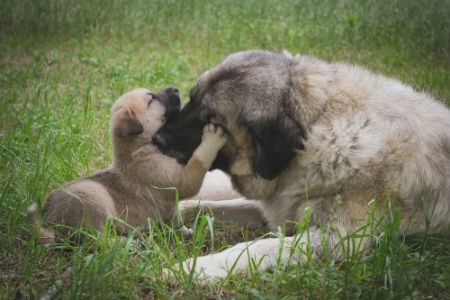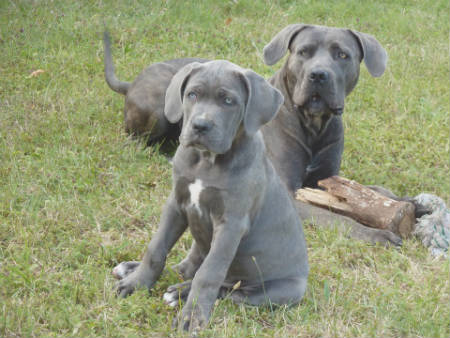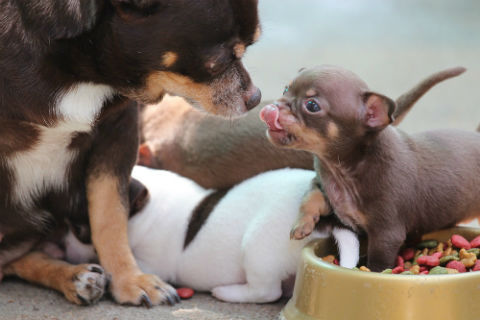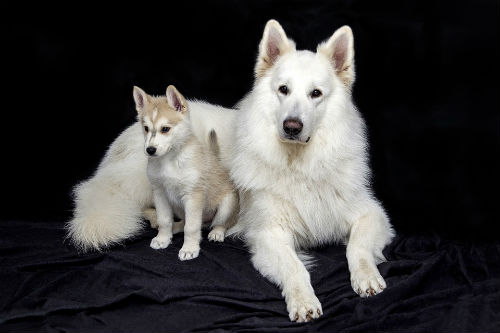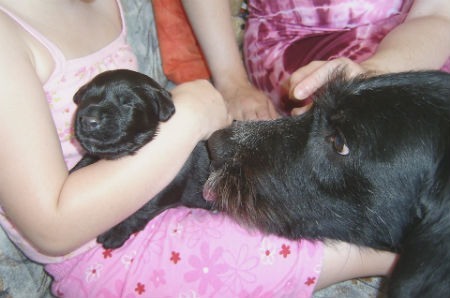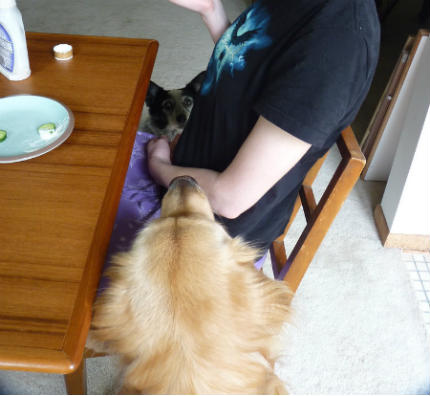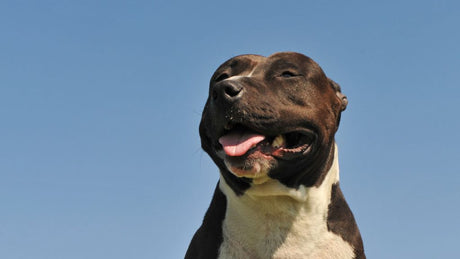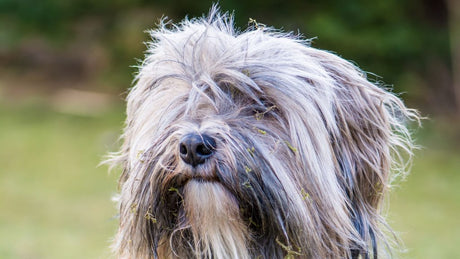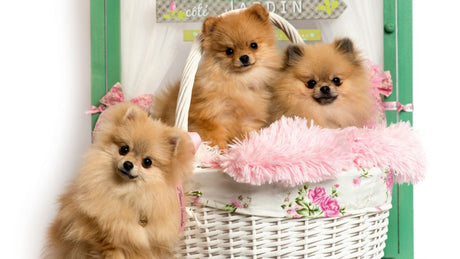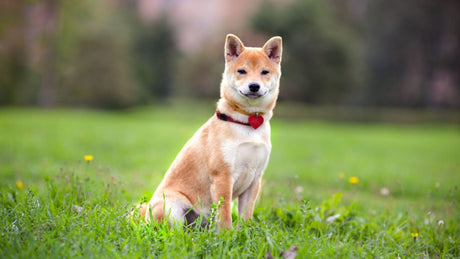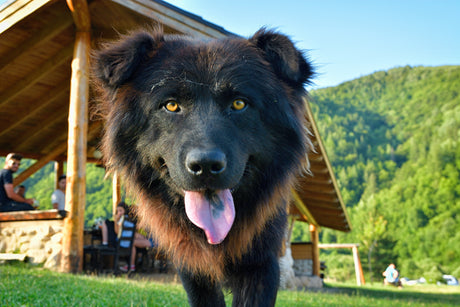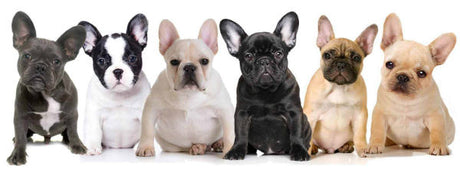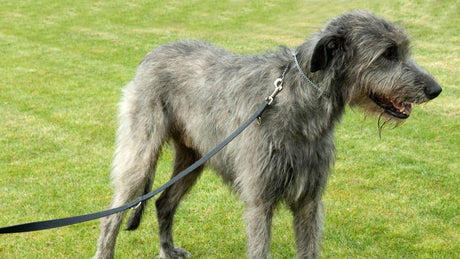There are two factors that you should take into account when
separating the puppy from its mother . The first is breastfeeding, and the second is emotional. Ideally, the puppy should be fed by its mother for the first 7 weeks of life. Living with its mother and siblings is important for its growth and development, therefore, it should never be separated before that time.
Elements that define the moment of separation
Lactation
Mother's milk is important for
puppies to develop healthy and strong . The nutrients contained in milk are essential to avoid future diseases or infections during the growth of puppies. Colostrum is the first milk they should consume, due to the defensive proteins or immunoglobulin, since
their immune system will strengthen during the time they are breastfed. The mother must be well cared for and fed, in this way she will offer her puppies better nutrition and they will enjoy good health in the future.
Emotional
We humans are unaware of the
damage that can be caused by premature weaning or early separation of a puppy from its mother. During the first 7 weeks of life, the puppy will learn from its mother and siblings. Being with his canine family, he will grow up to be a secure and emotionally balanced dog. Due to the immaturity of the puppy,
it cannot be separated from its mother at an early age , since it will be difficult for it to adapt and learn from us the behaviors typical of a puppy. Being with your family, you will be able to acquire your dog awareness and learn their lifestyle. With early weaning, the puppy may present problems with separation anxiety, hyperactivity, aggression, or even suck on fabrics or objects, as an involuntary act of the puppy.
Puppy growth periods
Neonatal (0 to 2 weeks)
They can't see or hear, they can only eat (breastfeed, because they don't have teeth) and feel with their little paws. Their ability to smell guides them to their mother to feed.
They need stimulation from the mother to be able to relieve themselves. Influenced by it, they will develop simple skills.
Transition (2 to 4 weeks)
They begin to hear and open their eyes. Their taste and smell are becoming more acute and they are already taking their first, unstable steps. Between the 3rd and 4th week, canine teeth emerge. Their little tails move, they play with each other and with moans and barks they begin to communicate. Little by little
they learn to relieve themselves without the mother's stimulation.
Socialization (4 to 12 weeks)
At this stage they establish bonds and interact with other dogs and are receptive to people. Between the 4th and 6th week the complete teeth appear. In the 5th week they enjoy their surroundings more safely, they play and run.
Puppies begin to be interested in solid foods , because they burn more calories due to the energy of age. In the 7th week you can begin to teach your puppy the basics, such as where to relieve himself. Remember that
training should be encouraging . By the 8th week, weaning is a fact that the mother no longer feeds them, having gone through a period of rejection of the puppies. Between weeks 8 and 10, your pet goes through a stage of fear, help him with positive guidance. At 9 weeks the mother scolds the puppies when they do not obey her, either with a growl or by biting them on the neck. Puppies are in a period of emotional development and social skills, they observe everything around them.
From 3 to 6 months
Period where he understands and is most
influenced by other puppies. Teething and chewing appear at this stage of development, including destructive chewing. Puppies go through another stage of fear.
From 6 to 18 months
Your pet may behave in a defiant manner, he knows that he is part of a pack, which is why
your dog's education must be constant and positive . During this period sexual behavior appears and the dog becomes territorial, unlike female dogs. Depending on the breed of your dog, it reaches adulthood. Generally: from 9 to 12 months for small breeds, from 12 to 18 months for medium breeds and at 24 months for large breeds.
recommendations
-
Feed the mother of the puppies well , the health of the pups depends on her diet.
-
Try to keep your puppy in contact with other dogs if he was separated early, so he will have better emotional development.
-
He constantly supervises the mother's behavior towards the puppies , she may reject the weakest one or all of them if she does not want to feed them.
- Stimulation by talking to puppies will make them develop emotionally quickly and confidently.
- Games and contact with nature and people are essential to create confidence and agility in dogs.
- The puppy must mature with his family , give him time to grow at your side.
- For the sake of the puppies, avoid separating them from their mother prematurely as much as possible .
When to separate a puppy from its mother?
When you have completed your breastfeeding period , that is, after 7 months of life. If you are an orphan or weaned as a newborn, it is advisable to give your baby a formula with a bottle, recommended by a veterinarian, and give it all the possible attention, human warmth and love, so that it grows strong and healthy. Remember that they are delicate and more prone to illness. Being breastfed by your mother is not the same as being fed with a bottle. It will not be an easy task to educate him as a child; fears and insecurities due to the lack of his mother will manifest themselves at any time.
How can you separate a puppy from its mother?
Taking the necessary precautions regarding the health of the puppy and its physical and emotional well-being. If you have to separate early, try to do it delicately and talk to the puppy's mother. Show them that it will be fine with you and allow them a moment of physical contact and affection.
Nature is wise,
each puppy grows at its own pace and they are a gift of life. Take care of your puppy and educate him in the best way possible, keep in mind that he will be your best company.
To learn more, we recommend that you read:

